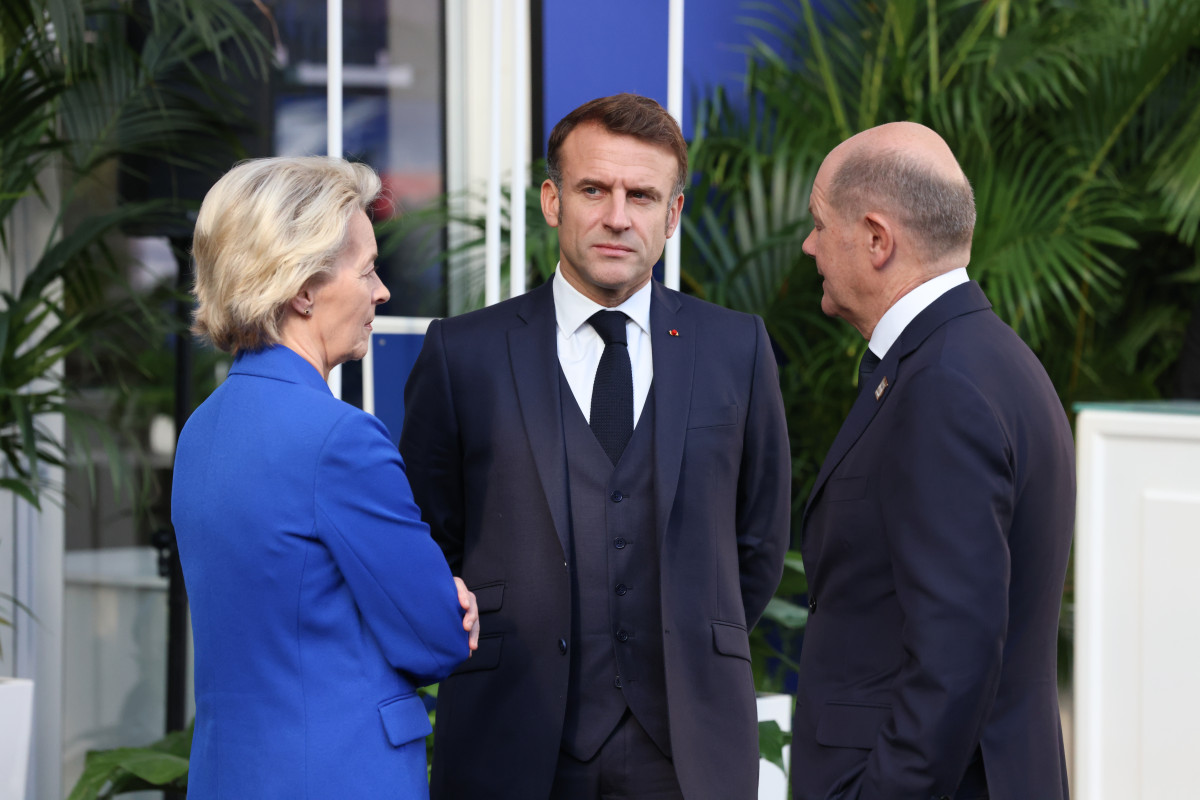Snap election chance for Germany to reset relations with European partners – analyst
Clean Energy Wire: How would you characterise the geopolitical order that the next German government will have to navigate?
Rafael Loss: We are in a sort of transitional period where there is a process of reordering. Old power centres are declining, others are emerging. Europe specifically is losing relative weight, if not absolute weight, on the world stage. This means that the next government will have to rethink some of the assumptions that have long guided German foreign policy, such as transactionalism, the role of multilateral institutions and the role of Germany inside the European Union, or the transatlantic relationship. All these are in flux.
What does this new order mean for Germany's role in the world or Europe?
In the context of Russia’s full-scale invasion of Ukraine and the collective western response it became very visible that the current German government put its bet on the robustness of the transatlantic relationship and that paid off while Joe Biden was in the White House.
Many decisions the government took were tightly coordinated with - and dependent on - the United States exerting leadership and then Germany following in its footsteps. This concerned rethinking the country’s energy policy, rebuilding its armed forces, and military aid to Ukraine.
This tight coupling between Berlin and Washington is no longer sustainable with Donald Trump in the White House. Over the past three years, Germany has missed many opportunities to build stronger European relations with Paris, Warsaw, and other capitals that could now help it rebalance its political relationships in the broader political west.
Do you see Germany's foreign and security policy change in any fundamental way from the outgoing government to the next?
The election programmes of the parties that will likely make up the next German government, i.e. the conservative CDU/CSU, the Social Democrats and the Greens, point to a consensus that Russia’s invasion of Ukraine does indeed represent a ‘Zeitenwende’ [change of an era], and that Germany’s foreign policy has had to adapt to it.
Regardless of who wins the election, the fact that it is taking place at this time offers German foreign policy the possibility of a reset in its relationships with major European partners.
The next government is set to continue these efforts, but the bar will be even higher because on some major issues this current government kicked the can down the road. This is true for defence spending, the question of conscription, and the future of the transatlantic relationship.
We also need to rethink Europe’s migration policy, which needs to be appropriately balanced with the need for migration to sustain things like pension systems, not only in Germany, but across Europe.
And the next government must answer the question of how we relate in our trade, security and clean energy policies to actors like China, where you have market distorting practices, which put the clean energy industry in the EU under enormous pressure. This must be done as a European collective rather than as individual member states, because Germany, Ireland or Spain alone do not bring enough weight to the scale.
Conservative chancellor candidate Friedrich Merz has said that he aims for closer coordination with France and Poland, but also other EU countries. So, is this the right way to go forward?
Regardless of who wins the election, the fact that it is taking place at this time offers German foreign policy the possibility of a reset in its relationships with major European partners.
It is positive that Merz is looking to rebuild relationships with Paris and Warsaw in particular, but his vision of European cooperation in many ways boils down to assembling coalitions of the willing to move forward on the European project. This points to the potential of friction between him and European Commission president Ursula von der Leyen – or more broadly between the future German government and the EU institutions.
Trump has returned to office as U.S. president. He has just announced tariffs on steel, which would also impact several EU countries. What else does the Union need to be prepared for?
It is unclear how much of Trump’s posturing is transactional in nature – so you could strike a deal, even if it is a painful one – or whether the president might actually be more of an ideologue, who has a fundamental dislike of Germany and the European project, things that to him seem woke, weak, liberal-minded, democratically slow, and so forth. With an ideological Trump, it is much more difficult to engage in productive conversations and to try to find common ground.
There would be much more antagonism on the fundamentals, and that could affect transatlantic relations in all policy areas, from climate through defence to the trade relationship, or coordinating joint approaches to the multiple challenges presented by China.
If Trump remains on the transactional level, where he has already said Europe should buy more U.S. oil and gas to avoid tariffs, should the next German government engage in this sort of deal making?
The critical first step would be to identify what is the German interest and how can this serve a broader European interest. That requires a strategic mindset that has often been lacking.
For many years and for historically good reasons, Germany did not necessarily articulate interests when it stepped onto the world stage. Its rhetoric was often value-laden, promoting things like human rights or gender equality. I subscribe to these values. But putting values at the centre of your foreign relations makes it difficult for others to understand the German interest and engage in a transactional relationship.
, but has been a steady source of energy for Germany for several years now. Photo: CLEW/Wettengel. Photo shows Freeport LNG export facilities in Texas, US. Photo: CLEW/Wettengel.](https://www.cleanenergywire.org/sites/default/files/styles/paragraph_text_image/public/paragraphs/images/julianwettengel-clew-texas-freeport-lng1_0.jpg?itok=m3D5iP7g)
Where the EU will struggle is when the Trump administration begins to create linkages between otherwise unrelated issues, such as saying that future U.S. security guarantees depend on more favourable trade balances. EU policy making often happens in silos, to make it easier for the 27 member states to find agreements by avoiding negotiations across policy areas because that could invite blackmailing.
Do you see a risk that Trump will try to play off EU member states against each other?
That was his strategy in the first term, and it is likely to remain so in the second term. For Trump, bilateralism is more intuitive than dealing with the European Union. Trump disregards that many decisions in the EU are taken by the collective and tries to bilateralise relationships.
I would expect him to try to do that going forward, especially in situations where he is not making much progress or starting to get frustrated talking to Europeans or to NATO, and then turning to bilateral relationships and blaming Germany or Spain, or some other country. Divide and conquer.
In the past three years, Germany has focused heavily on energy security, following the energy crisis and the halt of Russian energy supply. The government paid fossil fuel suppliers around the world a visit in efforts to secure and diversify supply. What does the next government have to do in this space?
Ideally, we would see a more consolidated European effort to diversify and strengthen energy relations going forward. However, EU countries face different kinds of challenges depending on their energy mix and dependence on imports of fossil fuels, uranium or green tech from across the world. The long-term goal for the EU should be clear though: boost green energy at home and with partners in the neighbourhood.
Given these different interests, how should Germany act?
There are benefits to expanding and deepening the European energy market as far as electricity supply is concerned. Germany has decided to bet on renewables and phase out nuclear energy.
Now that this decision has been taken, the country must speed up the expansion of wind and solar electricity and storage capacity, and use it as a competitive advantage for its export-oriented and innovation-dependent industry and to boost the credibility of its international climate diplomacy. Of course, other EU countries’ energy mixes will continue to look different from the German one, and the challenge will be to integrate the markets further in order to have a steady and cost-effective supply across the Union.



